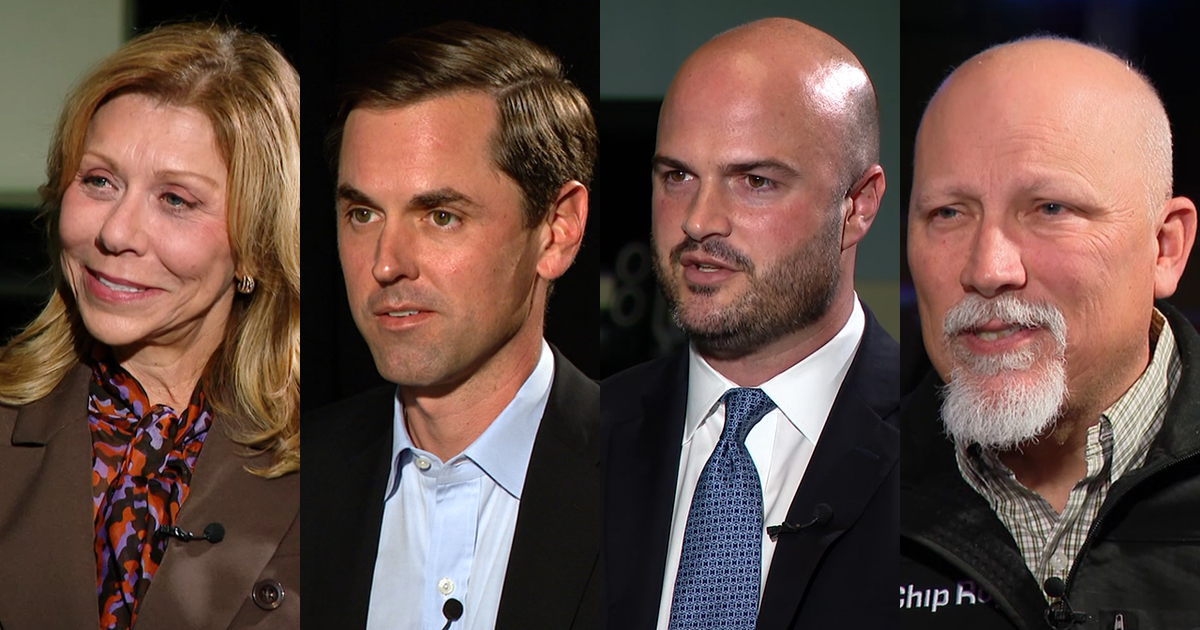Nikki Haley mostly avoids identity politics as Republican woman running for president in 2024
Beyond the political hurdles Nikki Haley faces in her bid for her party's nomination are also some unrelated to where she stands on the issues: the gender- and race-related attacks underscoring the challenges facing women and people of color in American politics as she seeks to become the first woman of color to win the presidency.
But from the outset of her campaign, Haley has not heavily emphasized her gender or race. In her campaign announcement, Haley told voters, "I don't believe in that," in reference to identity politics. "And I don't believe in glass ceilings either."
Candidates like Haley "don't want to spend time talking about the systemic barriers that could keep them out of office," according to Erin Loos Cutraro, the founder and CEO of She Should Run, a nonpartisan nonprofit working to increase the number of women considering a run for public office.
Although the former South Carolina governor often declines to react to many of the insults drawing attention to her identity, there are instances where she engages — but with a light, pointed touch.
When then-opponent Vivek Ramaswamy mocked her as "Dick Cheney in three-inch heels" during the third primary debate, Haley retorted, "They are five-inch heels — and I don't wear them unless you can run in them."
Haley's "femininity is not an obstacle" for her, said Kelly Dittmar, the director of research at the Center for American Women and Politics at Rutgers University, and in fact, she's "using the feminine image of her heel" to say, "'Look, actually, this feminine symbol is communicating a masculine credential."
Haley draws some inspiration from Margaret Thatcher, the conservative who was Britain's first woman prime minister and who was known as the "Iron Lady." During one debate, in dismissing a squabble between Chris Christie and Ramaswamy, Haley quoted Thatcher: "If you want something said, ask a man; if you want something done, ask a woman." And Haley also borrowed the line for the title of her book, "If You Want Something Done: Leadership Lessons from Bold Women."
Some supporters have been using Thatcher's nickname for Haley, too. Nile Gardiner, a former aide to Margaret Thatcher, called Haley "the closest America has to an Iron Lady today," after Haley delivered a lecture on Thatcher in 2021.
Former President Donald Trump has been accused of sexism in some of his attacks against Haley. After the second GOP primary debate, he began calling her "birdbrain." Haley tweeted a photo of a birdcage and birdseed left outside her hotel room that bore a gift tag from the Trump campaign. She's taken those attacks in stride as a sign of her growing strength in the race. "Love this," she tweeted about Trump's insults. "It means we are in 2nd and moving up fast."
The former president has butchered Haley's given first name, too, referring to her as "Nimbra" in social media posts. Haley, born in South Carolina and named Nimarata Nikki Randhawa, uses her middle name. Haley dismissed the namecalling, telling reporters, ""I'll let people decide what he means by his attacks."
Haley "doesn't fall into the typical political traps that other candidates fall into… which is taking attacks very personally, and taking the traditional bait from other candidates who like to stay down in the gutter," said Rob Godfrey, Haley's former deputy chief of staff when she served as governor.
"I think what she's done well from early on in her career is she really presses through, and if someone insults her, she has a tremendous amount of grace, and that is what's so appealing and refreshing for Republican women who are tired of the chaos," Republican strategist and CBS News political analyst Leslie Sanchez said.
Polling shows more men than women support Haley's bid across the nation, and Trump enjoys much stronger support from Republican women. In Iowa, this has proved to be true. Trump, who cruised to victory there last week, won 53% of women caucus voters, CBS News exit polling found, while just 20% backed Haley.
Dittmar says there's no so-called "gender affinity effect" at play in this race or historically — voters aren't backing a candidate just because they share the same gender.
"Her appeal among women, especially moderate women, is that she is authentic and grounded in her conservative beliefs," Sanchez said. "She defends them, she doesn't shy back from a fight, and she sincerely sounds compassionate about some of her proposals, whether that be on immigration or reproductive rights."
But Haley has been leaning a bit more into identity politics during the past month of her campaign, now frequently underscoring her position as the first female minority elected as South Carolina governor. Her handling of racial issues in recent weeks has prompted a backlash, including a failure to mention slavery as a cause for the Civil War in an answer at a town hall, as well as a remark she made that America "has never been a racist country."
Haley has worn a sweater bearing the message "she who dares wins" several times recently, and after Florida Gov. Ron DeSantis dropped his presidential bid Sunday, noted that the GOP nomination contest was down to "one fella and one lady." She added, "May the best woman win."
Dittmar thinks that Haley's party makes her race for the nomination more difficult.
"If she were running as a Democrat, I think there are ways in which her gender could be more advantageous than it is as a Republican, because as a Democrat, there is some buy-in to the belief that identity… comes with experienced perspective that is, in fact, valuable for an elected official," said Dittmar.
But if Haley prevails in her fight to be the Republican nominee, it's not likely to be related to her gender. A Pew Research study found 86% of Republicans believe it is not at all or not too important for the U.S. to elect a woman president in their lifetime, compared to just 43% of Democrats.
It also concluded that 82% of Democratic and Democratic-leaning women think there are too few women in high political offices in the U.S., over twice the percentage of Republican and Republican-leaning women who think this is the case.
Haley "does not have the same support system that Democratic women at the same level would have," according to Cutraro. But this has not insulated Democratic women candidates from sexist attacks.
Kamala Harris, who is the first woman vice president, first Black vice president, and first Asian American vice president, faced a barrage of racist and sexist attacks during her 2019 campaign for president and then vice president in 2020. Trump mispronounced her first name and lobbed insults at her like "monster," "totally unlikeable" and "nasty."
A super PAC that supported DeSantis, Fight Right, has released videos attempting to tie Haley to 2016 Democratic presidential nominee Hillary Clinton. And other Republicans, too, have tried to thread comparisons, despite Haley's stark differences with Clinton on politics and policy.
When Clinton ran for president, she said being a woman was "one of the merits" of her campaign, but at the same time, it came with a barrier, the so-called "glass ceiling" she sought to break in winning the presidency.
Haley "doesn't explicitly frame those rules as a credential for her office, because it wouldn't ring true with her electorate," Dittmar said.
A CBS News poll conducted in December found likely Republican voters in the key primary state of New Hampshire saw Haley as the most "likable" and "reasonable" candidate.
That's a big deal, Cutraro says, because when voters see women as qualified, they often don't see them as likable. It's true that likability was a measure Clinton memorably struggled with in her presidential campaign. In Jan. 2008, Clinton was asked during a debate to address New Hampshire voters "who see a resume and like it but are hesitating on the likability issue, where they seem to like Barack Obama more." She agreed that Obama was likable but said, "I don't think I'm that bad." It was Obama whose quip was criticized soon afterward — "you're likable enough, Hillary."
This has not been an issue for Haley in her presidential campaign. Godfrey said that Haley has been able to endear herself to voters "because she's someone who talks about her experience as a mom, she's someone who talks about her experience as the wife of someone who puts on a uniform every day, and she talks about her experience as a woman who has succeeded at the highest level in a man's world."
Nidia Cavazos contributed to this report.



